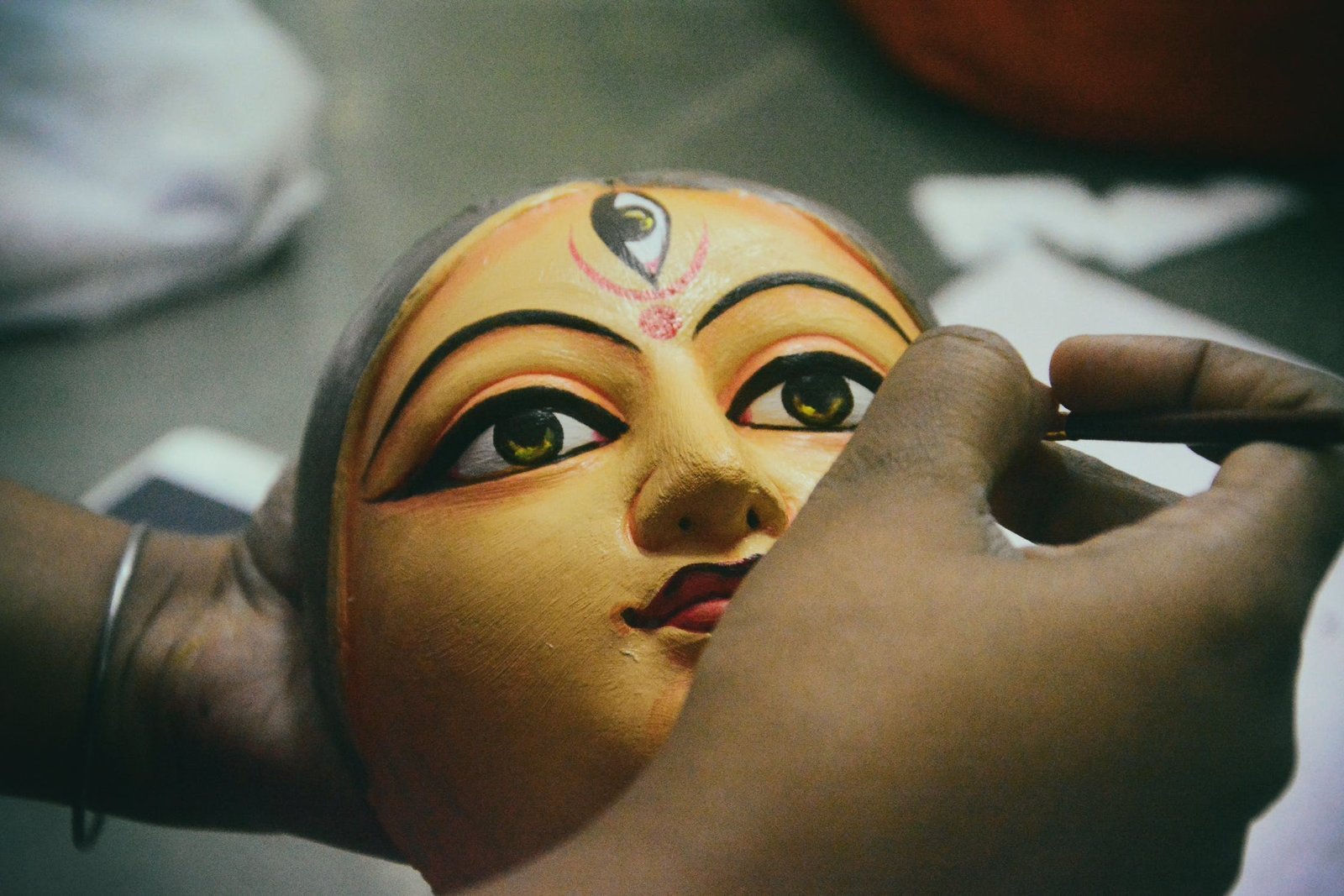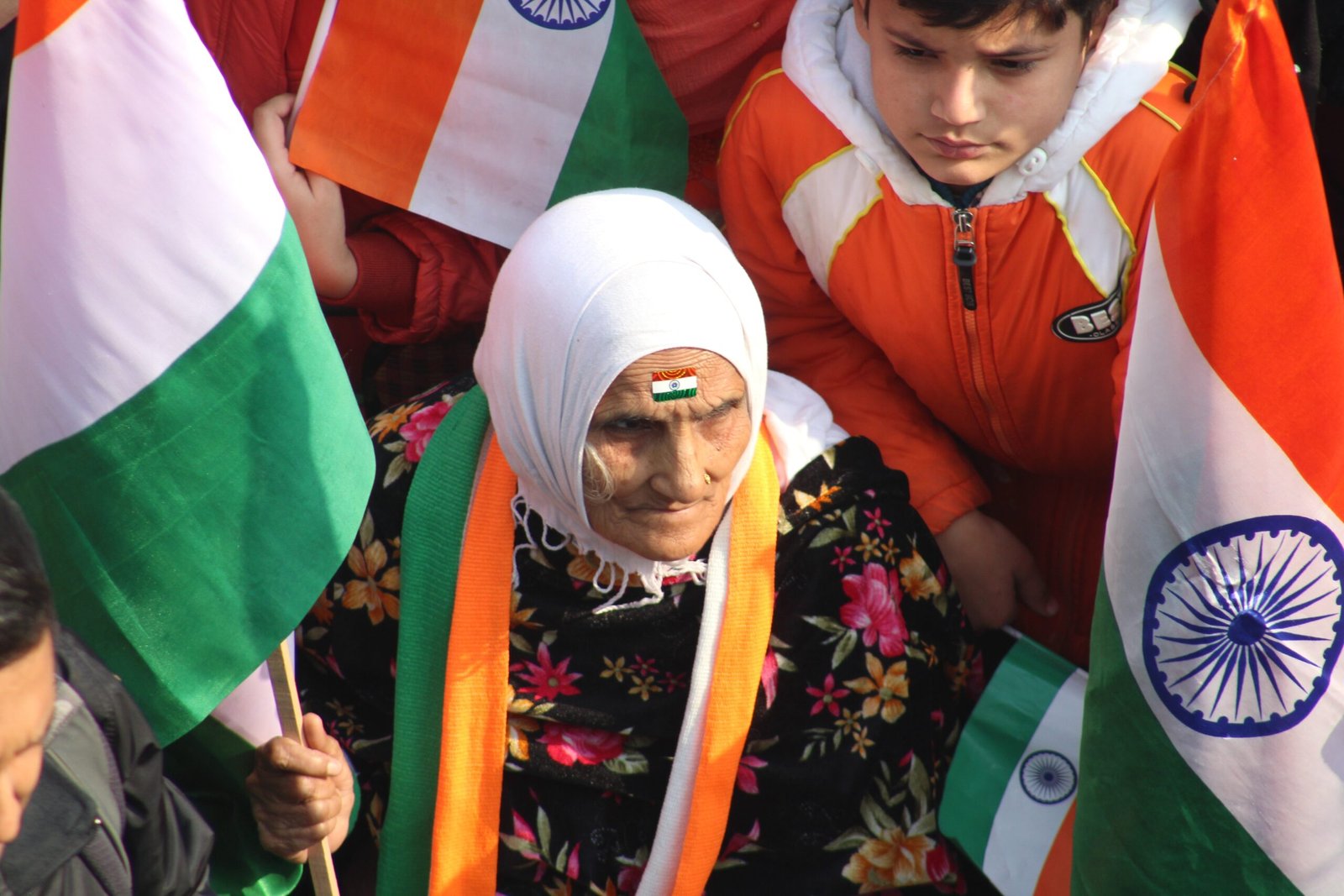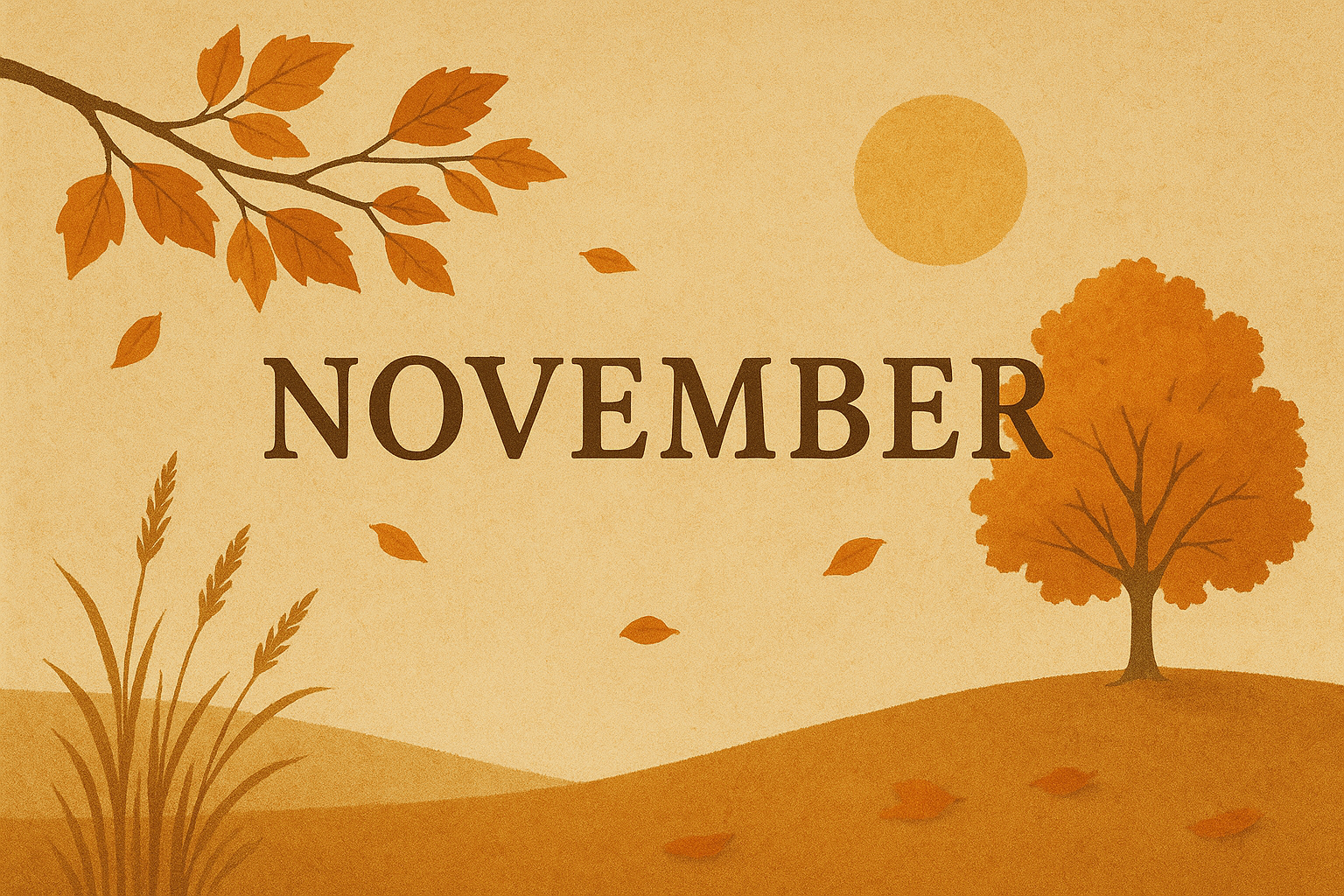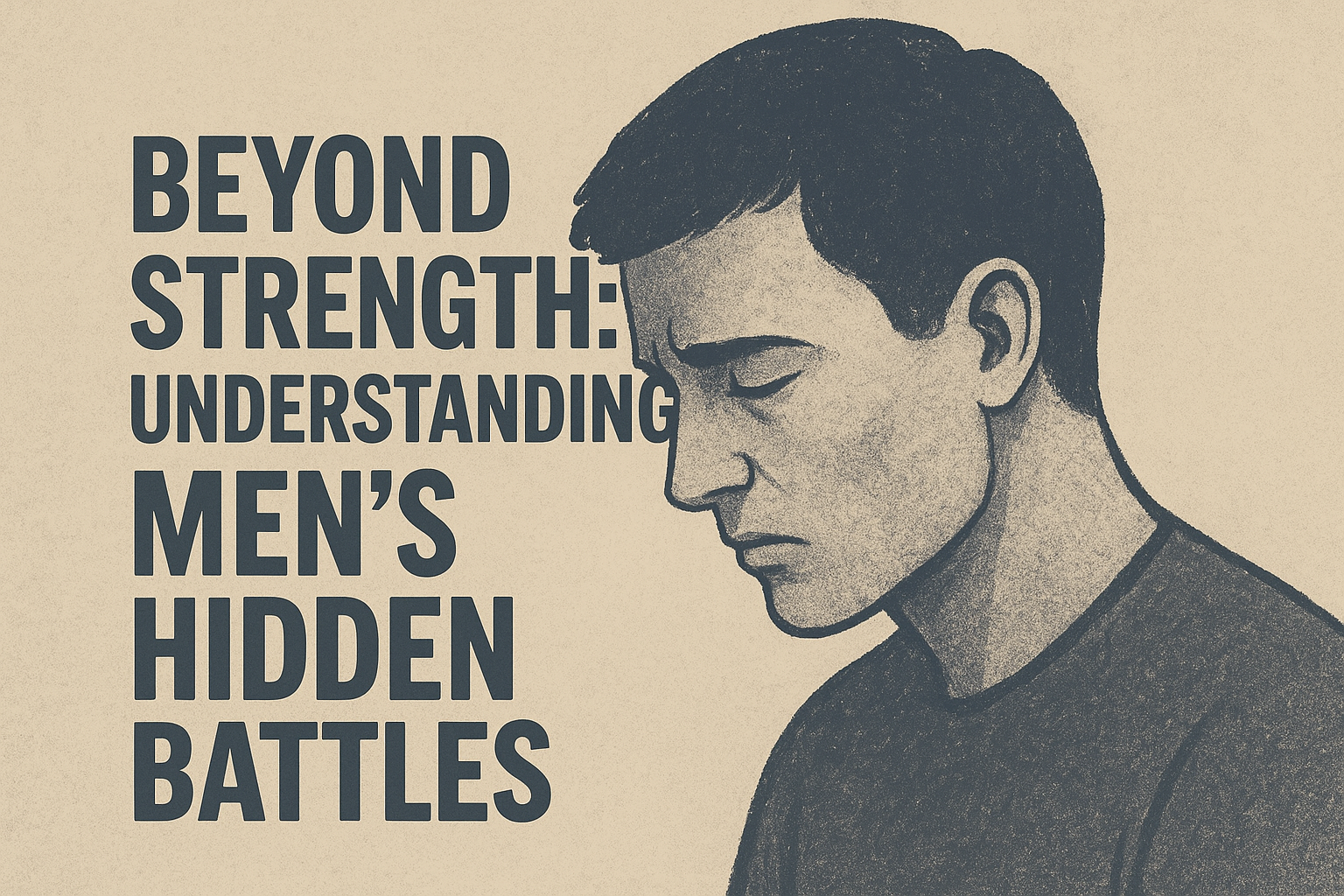One of my co-workers here in Bangalore was asking me the other day what Durga Puja is all about. As I seriously started thinking about what exactly this phenomenon is in its essence, some visions from the past, started flooding in.
Every year before the pujas, I would go shopping with my mother. We had little money but a lot of desires. Yet, we would always manage to buy something that fit both our dreams and reality, just right! During my pre-teen years, I would go pandal hopping with my maternal aunt, uncle and my cousin brother Tito. Whenever Tito would catch me looking at a specific food item or maybe balloons during those walks and bus rides, he would throw a tantrum to get them because he knew I was too shy to ask for something from my aunt. Later, when I would go pandal hopping with friends during my college years, they would always choose these small, unfamiliar restaurants though they could afford better places because they knew I had no money and time and again, they would choose hanging out with me over hip restaurants.
My train of thoughts slowly made me realize that Durga Puja, for Bengalis, is not about worship or religion at all. It is about community and togetherness, a feeling of bonhomie that we often forget to practise in our day-to-day rush for survival. Unlike the rest of the country that usually celebrates Ram’s worship of Durga and eventually the defeat of Ravan in the hands of Ram, we celebrate the homecoming of our daughter Uma along with her prosperous family of children. The Agamoni songs are less about welcoming a goddess and more about a mother’s longing for the arrival of her daughter after a long, long year. Everyone starts hustling and bustling in preparation for her arrival. The days that she is here are days of celebration, with new clothes, delicious food, crackers, music and most of all, with each other. Families fly down from different parts of the world. Neighbours who rarely ever meet each other form committees and show exemplary teamwork. Every street gets decked up with some food stall, every house gets decked up in some form of lighting, every nook and corner of the city resonates with at least a faint beat of the dhaak. Most people get holidays if they are in Bengal. If they are outside, well, they ensure they take a couple of days off. I know children who have learned team spirit and working together by watching their otherwise aloof parents mingle with neighbours and relatives during this season for the sake of a common goal – arranging for the warmest, grandest welcome for our beloved Uma.
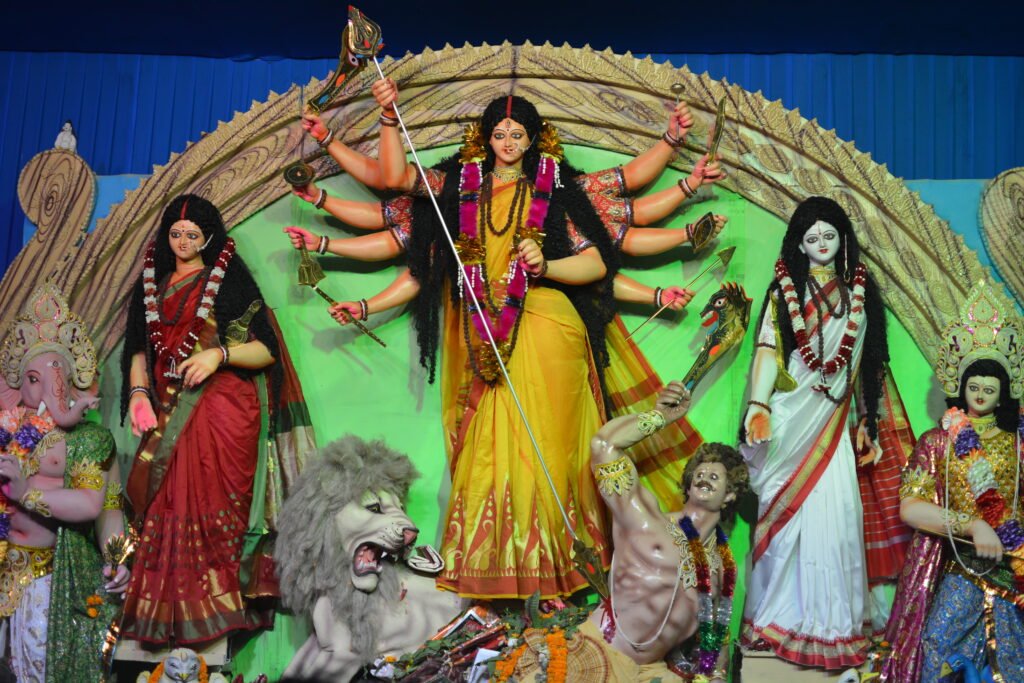
My grandfather once told me that when we say Ma Durga killed Mahishasur, in many readings, it’s metaphorical. Because Durga represents the eternal Mother and Mahishasur is her child too. Just as a mother disciplines her naughty children, Durga disciplines Mahishasur and destroys the evil in him, not him. I know that this is a very simplistic interpretation of Mahishasur Mardini and that other narratives ranging from Navaratri to Hudur Durga all offer us counter perspectives. But as a Bengali, far away from the city of joy, my home, I will choose to believe my grandfather today, I will choose to believe in Uma as a mother and a daughter. I will choose to believe that she is finally coming home and we are all waiting in fervent anticipation. I will choose to believe that her mother is standing near the door, brimming with mixed emotions, to hug her and the grandchildren, like all grandmothers do. I will choose to believe that unlike Dussehra, Dashami is a day of mourning while an entire community becomes Uma’s parents, teary-eyed at the thought of her going away to her vagabond husband in the mountains, devoid of all the comforts of a life lived under the parents’ care.
I have a wonderful, caring, husband. But still, every time I leave Kolkata, my mother’s expression reminds me of this agamoni song:
“Ebar amar Uma ele/ Ar Uma pathabo naa” (This time when Uma comes/ I am never sending her back again).
I didn’t say all of this to my co-worker and overwhelm her, of course. But for a few minutes, I felt completely one with Uma, far, far away, waiting to go home and wipe those tears off my mother’s exhausted and unnecessarily worrying face.

By Sanchari Bhattacharya
Sanchari is a writer and artist, currently based in Bangalore. Her writings (fiction, non-fiction, translations etc.) have been published in various magazines, anthologies as well as different online platforms, over the years. Her interest in feminist literature, coupled with her experience of being raised by a widowed single mother, deeply influences both her art and her writing. She can be contacted at sanchari.info@gmail.com





